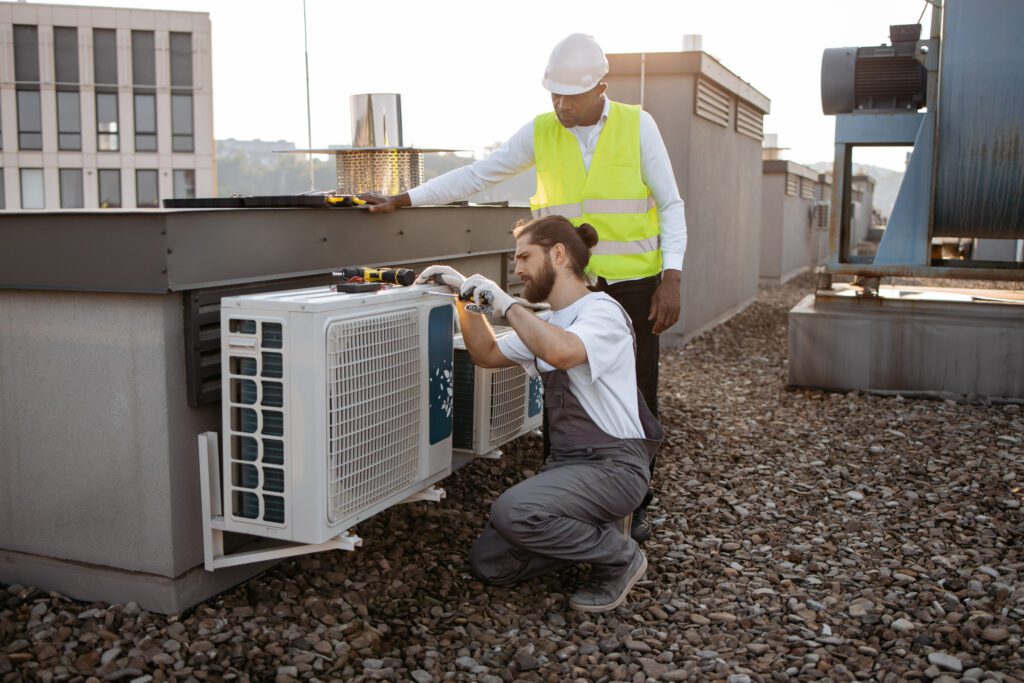When it comes to maintaining a comfortable working environment for your Martinsburg, WV business, a reliable air conditioning system is essential. However, even the most well-maintained commercial air conditioning units have a limited lifespan and will eventually require replacement. In this guide, we will explore the signs that indicate your business’s air conditioning system is in need of replacement, evaluate different types of commercial air conditioning systems, discuss the process of replacement, consider the cost factors involved, and provide maintenance tips for your new system.
Understanding the Need for Commercial Air Conditioning Replacement
Commercial air conditioning units are designed to last for a certain period of time, typically around 15 to 20 years. However, several factors can affect the lifespan of your system. These include the type and quality of equipment, frequency of maintenance, and the overall usage. It is important to recognize the signs that indicate your business’s air conditioning system is nearing the end of its lifespan to avoid inconvenient breakdowns and costly repairs.
When considering the replacement of a commercial air conditioning unit, it is essential to take into account the advancements in technology and energy efficiency that have occurred since the installation of the current system. Newer models often offer improved performance, lower energy consumption, and enhanced features that can benefit your business in the long run. Upgrading to a more modern unit can not only provide better comfort for your employees and customers but also lead to cost savings on energy bills.
The Lifespan of Commercial Air Conditioning Units
The lifespan of a commercial air conditioning unit can vary depending on various factors such as the manufacturer, installation quality, and maintenance history. However, on average, most commercial air conditioning systems will last between 15 to 20 years. Proper maintenance and regular servicing can help prolong the lifespan of your unit and ensure optimal performance.
Additionally, the environment in which the air conditioning unit operates can also impact its longevity. Factors such as exposure to extreme temperatures, humidity levels, and airborne contaminants can contribute to wear and tear on the system over time. By monitoring the conditions in which your unit operates and taking proactive measures to address any potential risks, you can help extend its lifespan and reduce the likelihood of unexpected failures.
Signs Your Business’s Air Conditioning System Needs Replacement
There are several signs that indicate your business’s air conditioning system may be in need of replacement. These include frequent breakdowns, inconsistent cooling, unusual noises, excessive energy consumption, and outdated technology. If you notice any of these signs, it is important to consult with a professional to assess the condition of your system and determine if replacement is necessary.
Furthermore, upgrading to a new air conditioning system can not only improve the comfort and productivity of your workspace but also enhance the air quality. Modern units come equipped with advanced filtration systems that can help remove dust, allergens, and other pollutants from the air, creating a healthier indoor environment for everyone in the building. Investing in a new system can contribute to a more pleasant and efficient work environment while also demonstrating your commitment to sustainability and employee well-being.
Evaluating Different Types of Commercial Air Conditioning Systems
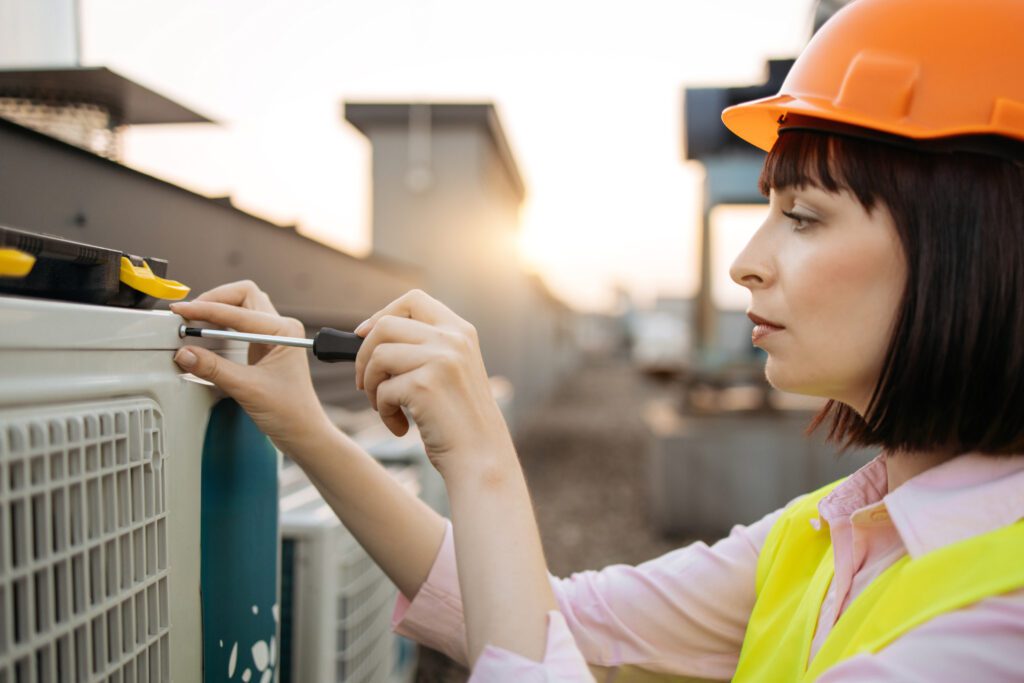
When it comes to selecting a new commercial air conditioning system for your Martinsburg business, there are several options to consider. Each type of system has its own advantages and considerations. Let’s take a closer look at three common types of commercial air conditioning systems: central air conditioning systems, ductless mini-split systems, and heat pump systems.
Central Air Conditioning Systems
Central air conditioning systems are a popular choice for larger commercial spaces. They consist of a central unit that cools and dehumidifies the air, and a system of ducts that distribute the conditioned air throughout the building. Central air conditioning systems offer consistent cooling and can be controlled by a centralized thermostat.
One advantage of central air conditioning systems is their ability to provide even cooling throughout the entire building. This is especially important in large commercial spaces where maintaining a comfortable temperature in every corner is crucial. The centralized thermostat allows for easy control and adjustment of the cooling settings, ensuring optimal comfort for employees and customers alike.
Another consideration when evaluating central air conditioning systems is the maintenance and upkeep. Regular maintenance, such as cleaning and replacing filters, is necessary to keep the system running efficiently. It is also important to periodically inspect the ductwork for any leaks or damage that may affect the system’s performance. By staying on top of maintenance tasks, you can prolong the lifespan of your central air conditioning system and avoid costly repairs in the long run.
Ductless Mini-Split Air Conditioning Systems
Ductless mini-split air conditioning systems are a great option for smaller commercial spaces or businesses that do not have ductwork. These systems consist of an outdoor unit and one or more indoor units, which are mounted on the wall or ceiling. Ductless mini-split systems offer individual temperature control in different zones and are energy efficient.
One of the main advantages of ductless mini-split systems is their flexibility in zoning. Each indoor unit can be independently controlled, allowing for customized temperature settings in different areas of the building. This is particularly beneficial for businesses with varying cooling needs in different rooms or sections. For example, a conference room may require a different temperature than a storage area, and ductless mini-split systems can easily accommodate these differences.
Energy efficiency is another key consideration when evaluating ductless mini-split systems. These systems only cool the areas that need it, avoiding energy waste in unoccupied or less frequently used spaces. Additionally, the absence of ductwork eliminates the energy losses that can occur in traditional central air conditioning systems. By opting for a ductless mini-split system, you can not only save on energy costs but also reduce your carbon footprint.
Heat Pump Systems
Heat pump systems are versatile and efficient options for commercial air conditioning replacement. They can both cool and heat a space by extracting heat from the air outside and transferring it indoors or vice versa. Heat pump systems are particularly beneficial in areas with mild climates like Martinsburg.
One advantage of heat pump systems is their ability to provide both heating and cooling capabilities in a single unit. This eliminates the need for separate heating and cooling systems, simplifying the overall HVAC setup. Heat pumps are also known for their energy efficiency, as they transfer heat rather than generate it, resulting in lower energy consumption and reduced utility bills.
In areas with mild climates like Martinsburg, heat pump systems can be highly efficient. They are designed to work efficiently even in lower outdoor temperatures, making them suitable for year-round use. By harnessing the heat from the outside air during winter months and reversing the process in summer, heat pump systems provide consistent and comfortable indoor temperatures throughout the year.
When evaluating heat pump systems, it is important to consider the initial installation cost. While heat pump systems may have a higher upfront cost compared to other options, the long-term energy savings can offset this investment over time. Additionally, many heat pump systems qualify for government incentives and rebates, further reducing the overall cost.
As you consider different types of commercial air conditioning systems for your Martinsburg business, it is essential to weigh the advantages and considerations of each option. Central air conditioning systems offer consistent cooling and easy control, while ductless mini-split systems provide flexibility and energy efficiency. Heat pump systems, on the other hand, offer both heating and cooling capabilities and excel in mild climates. By carefully evaluating these options, you can make an informed decision that meets the specific cooling needs of your commercial space.
The Process of Commercial Air Conditioning Replacement
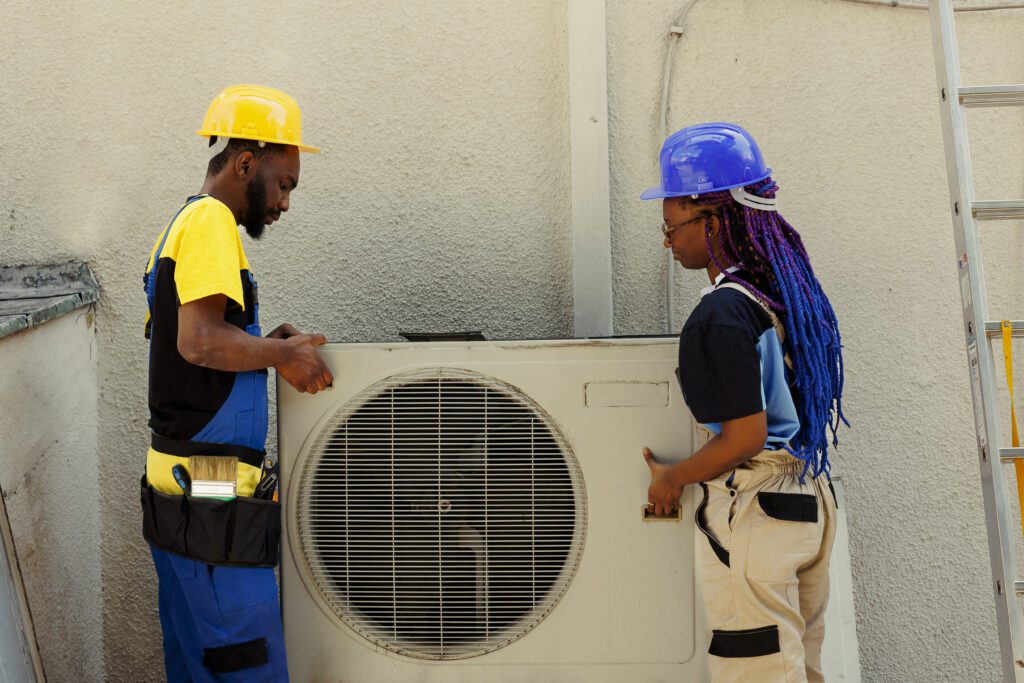
Replacing a commercial air conditioning system involves several important steps to ensure a smooth transition and optimal performance. Let’s explore the process in more detail:
Commercial air conditioning replacement is a significant investment for any business, and it is essential to approach the process with careful consideration and planning. By following a structured approach, you can minimize downtime, maximize energy efficiency, and improve indoor air quality for your employees and customers.
Initial Consultation and Assessment
The first step in the replacement process is to schedule an initial consultation with a reputable HVAC contractor. During this consultation, the contractor will not only evaluate your current air conditioning system but also take into account the layout of your commercial space, the number of occupants, and any specific cooling requirements you may have. This thorough assessment is crucial in determining the most suitable replacement options tailored to your business needs.
Choosing the Right Air Conditioning System
After the assessment phase, selecting the right air conditioning system is a critical decision that will impact your business for years to come. Factors such as energy efficiency ratings, maintenance requirements, and environmental impact should all be taken into consideration. Additionally, the size and layout of your commercial space will play a significant role in determining the appropriate cooling capacity needed to maintain a comfortable indoor environment.
Installation and Testing
Once you have chosen the ideal air conditioning system for your business, professional installation is key to ensuring its effectiveness and longevity. Experienced technicians will handle the installation process, making sure that all components are properly connected and calibrated for optimal performance. After the installation is complete, rigorous testing will be conducted to verify that the system is operating efficiently and effectively. Any necessary adjustments will be made to guarantee proper airflow and consistent cooling throughout your commercial space.
Cost Considerations for Commercial Air Conditioning Replacement
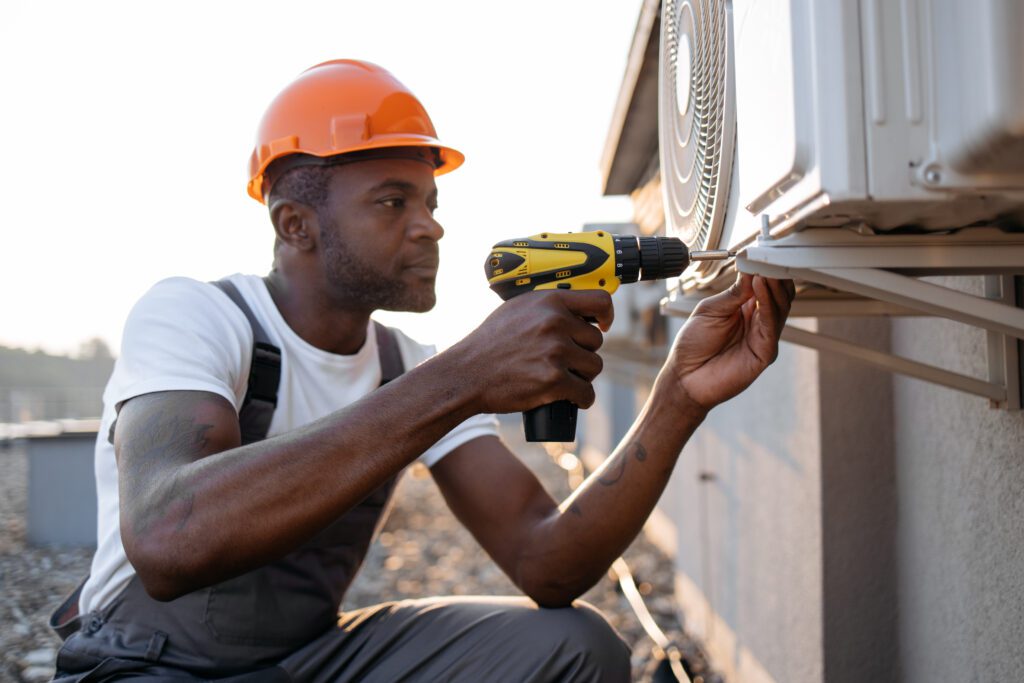
Replacing a commercial air conditioning system is a significant investment for any business. Several factors can influence the cost of replacement. Let’s explore them in more detail:
When considering the cost of replacing a commercial air conditioning system, it’s essential to take into account not only the initial investment but also the long-term savings and benefits that a new system can provide. Energy-efficient models may have a higher upfront cost but can result in lower energy bills and reduced maintenance expenses over time, ultimately saving your business money in the long run.
Factors Influencing the Cost of Replacement
Factors such as the size of your building, the complexity of the installation, the type of system chosen, and additional upgrades or modifications required can all impact the cost of commercial air conditioning replacement. It is important to obtain multiple quotes from reputable HVAC contractors to ensure you are getting a fair price.
Another factor to consider when calculating the cost of replacement is the timeline for installation. If your business operates year-round, you may need to schedule the replacement during a slower period to minimize disruptions. Planning ahead and coordinating with your chosen HVAC contractor can help ensure a smooth transition to the new system without impacting your daily operations.
Financing and Payment Options
If the upfront cost of replacement is a concern, explore financing and payment options offered by HVAC contractors. Many contractors offer flexible financing plans that can help you manage the cost of replacement over a period of time. Additionally, consider any available rebates or incentives that may help offset the cost.
It’s also worth inquiring about maintenance packages or extended warranties that may be available for your new commercial air conditioning system. Investing in regular maintenance can prolong the lifespan of your system and prevent costly repairs down the line, providing additional value and peace of mind for your business.
Maintenance Tips for Your New Commercial Air Conditioning System
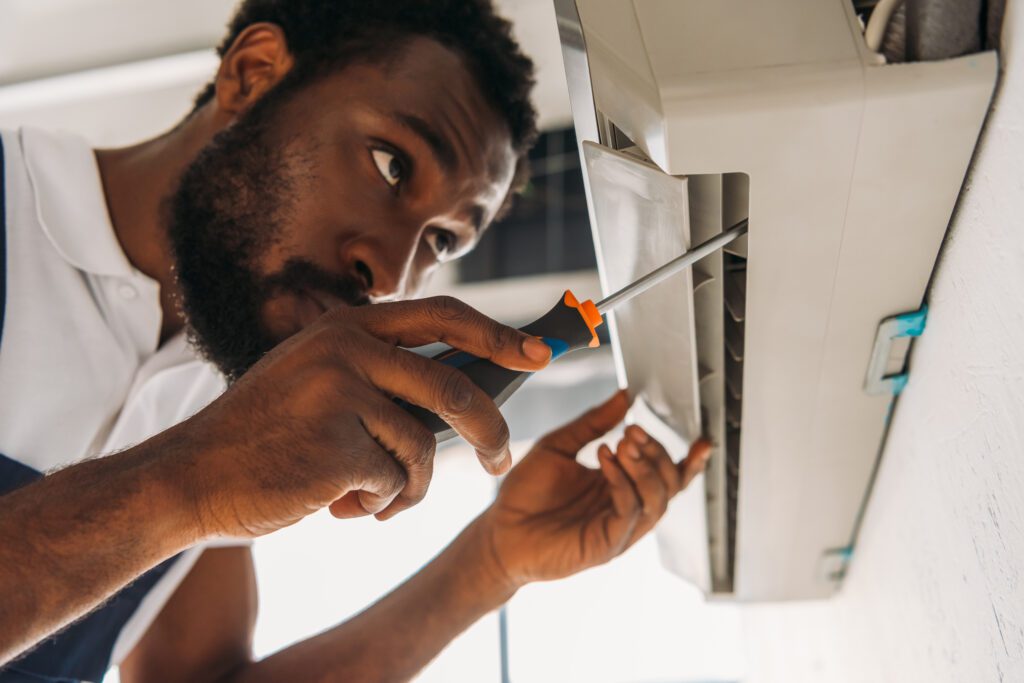
After investing in a new commercial air conditioning system, it is important to properly maintain it to ensure optimal performance and longevity. Here are some maintenance tips to keep in mind:
Regular Cleaning and Servicing
Schedule regular cleaning and servicing of your air conditioning system to keep it in good condition. This includes cleaning or replacing air filters, cleaning coils, and checking refrigerant levels. Regular maintenance will help prevent breakdowns, improve energy efficiency, and extend the lifespan of your system.
Addressing Minor Issues Before They Become Major Problems
Address any minor issues or unusual sounds or smells promptly. Ignoring these signs can lead to bigger problems down the line and result in costly repairs or premature replacement. Contact a professional HVAC technician to diagnose and resolve any issues before they escalate.
By understanding the signs that indicate the need for replacement, evaluating the different types of systems available, considering the cost factors involved, and implementing proper maintenance practices, you can ensure your Martinsburg, WV business has a reliable and efficient air conditioning system. Consult with a reputable HVAC contractor for expert guidance tailored to your specific needs, and enjoy a comfortable working environment year-round.

